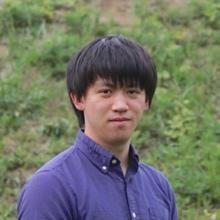
Join us for an insightful panel discussion, Steps to Starting a Startup in the QC Space, at the 2023 Quantum Computing Applications in Chemical and Biochemical Engineering Workshop in Denmark this May. Industry-leading founders of quantum computing startups from around the world will share their experiences and insights into the future prospects of the industry.
One of our esteemed panelists, Tennin Yan, will be sharing his journey of founding QunaSys, a highly watched startup in the quantum computing industry, at the conference. In a recent interview, Tennin shared his perspectives on the latest trends in quantum computing and offered valuable insights on how to prepare for the quantum era.
What are some of the latest trends in the field of quantum computing that have recently caught your attention?
One trend that has caught my attention is the recent demonstration of quantum error correction by Google. While the theoretical ability to supress errors increases with more qubits, the fragility of qubits means that even slight environmental factors can cause errors and disrupt calculations. Google's achievement in proving that their quantum computer functions as expected is a significant step forward, and it opens up the potential for leveraging the computational power of large-scale quantum devices with thousands of qubits. This is particularly exciting for applications such as material simulations, which are considered to need a smaller number of qubits to achieve computational power that current supercomputers cannot reach. With the use of quantum error correction, even partially, we expect it will lead to practical applications.
What are some of the main challenges your clients typically encounter, and how do you address them?
In material simulations, our clients often encounter challenges with the limitations of algorithms performance on the current quantum computers. At QunaSys, we help companies navigate these challenges by evaluating algorithms' applicability and performance and how they can be applied to specific industrial applications. Additionally, we collaborate with companies on joint projects to improve algorithms and discover new use cases. We have had successful examples where we managed to obtain chemical properties that couldn’t obtained through combining existing quantum algorithm with developing new quantum algorithm. To date, we have collaborated with more than 20 Japanese large companies on these joint projects and published 13 papers to share our achievements.
What steps can someone take to become "quantum ready," and how does QunaSys help in this process?
As interest in quantum computing grows and the technology constantly evolves, it is important to get the most recent updates in an accurate manner. That is why we launched QPARC (Quantum Practical Application Research Community) in 2018 as a one-stop-shop for industry leaders to learn about quantum computing. With over 50 leading companies as members, QPARC offers seminars, online courses, and self-study tutorial videos to keep members updated with the latest QC information. Additionally, members can opt for additional programs to gain hands-on experience with quantum computing, including problem-solving exercises on a QC simulator, access to real QC hardware, and collaborative research projects. This unique approach sets QPARC apart from many consortiums and allows members to discover real-world use cases for quantum computing implementations. We recently launched QPARC in Europe and look forward to welcoming many European companies to our community. At QunaSys, we're committed to providing our members with the tools and knowledge they need to become quantum-ready and stay at the forefront of this exciting technology.

Tennin Yan
Tennin Yan is the Founder and Chief Executive Officer of QunaSys, a company at the forefront of making quantum computing technology industrially useful. Since co-founding QunaSys in 2018 with Prof. Keisuke Fujii, Tennin has been leading the company's strategy, product development, and overall vision. Tennin is focused on developing algorithms and applications that leverage the power of quantum mechanics to tackle problems beyond the scope of conventional technology. He has extensive experience in comparing quantum computing with classical approaches to analyze its performance, and his expertise covers various areas, including machine learning, quantum chemistry, and general circuit design. He has published several papers on topics such as quantum simulator software, VQE, and photochemical reactions.
Disclosure: This post is sponsored by QunaSys and reflects their views, opinions, and insights.

